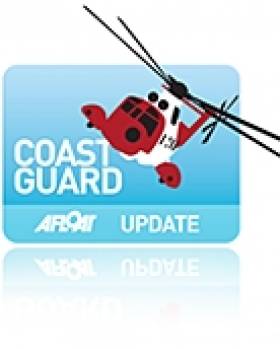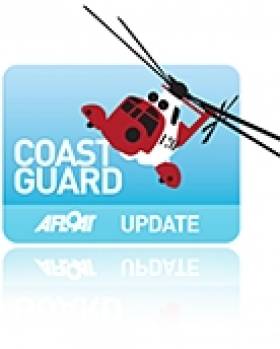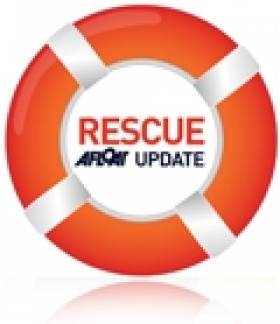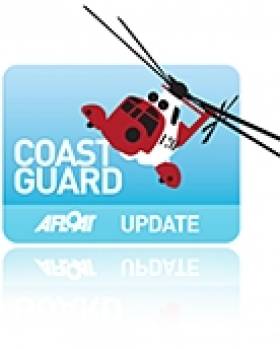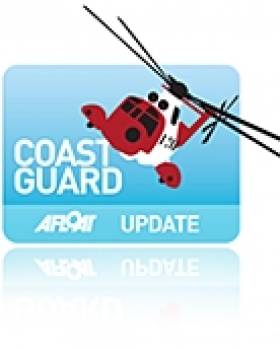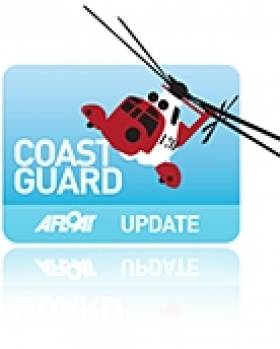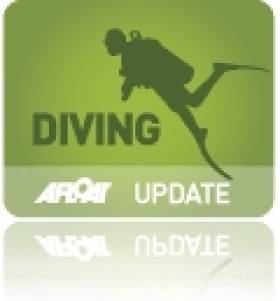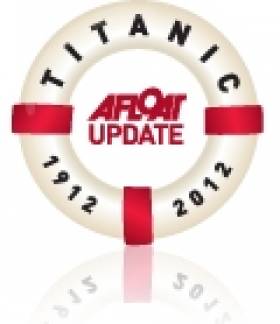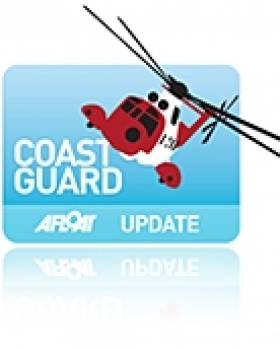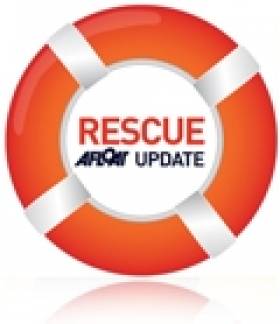Displaying items by tag: Irish Coast Guard
#COASTGUARD - A Donegal TD has asked the Government for assurances on the future of the coastguard station at Malin Head, as the Donegal Democrat reports.
Fianna Fáil's Charlie McConalogue, the Deputy for Donegal North-East, said the recent 'value for money' review of the Irish Coast Guard network "raises fresh concerns for the future of what is an excellent and life-saving service in Donegal and across the North West region."
He added that Malin Head "has provided and invaluable service for over a century" with a core of "highly trained and experienced staff" who are benefitting from an "extensive upgrade" of eqiupment at the station.
"The notion that all of this work could go to waste and service could be removed entirely is a disgrace," said Deputy McConalogue, who also argued that Malin's potential closure would represent a disproportionate level of cuts to local services in the North West.
As previously reported on Afloat.ie, Minister for Transport Leo Varadkar is set to make "tough decisions" for an action plan due in October to deal with efficiencies in the coastguard network as highlighted in the Fisher Report, which may involve the closure of a coastguard radio station at either Malin or Valentia.
Woman Airlifted from Cruise Liner in Galway Bay
#COASTGUARD - Galway Bay FM reports that an elderly woman was airlifted by the coastguard from a cruise liner in Galway Bay yesterday morning.
It's believed that the passenger was experiencing cardiac problems.
The woman is a passenger on the Marco Polo, the 800-passenger cruise vessel that was recently anchored in Bantry Bay, as previously reported on Afloat.ie.
Her condition was assessed on board by paramedics before she was taken to Galway University Hospital by the Shannon-based Irish Coast Guard rescue helicopter.
Man Rescued After Fall On Rocks in Co Down Coast
#RESCUE - A man has been rescued after falling on rocks and into the sea near Sheepland Harbour in Ardlass, Co Down yesterday 7 July.
BBC News reports that local lifeboat crews from the RNLI joined the Belfast coastguard and an Irish Coast Guard helicopter in the cross-border rescue effort, which saw the man airlifted to hospital in Belfast.
The man has reportedly fallen some 25 feet onto rocks and "bounced" into the water, according to Alan Pritchard of the Belfast coastguard, who added that family members were able to recover the man back into the rocks.
The full extent of the man's condition is not yet known, though it is believed he sustained significant neck and spinal injuries in the fall.
In the Belfast Telegraph, South Down MP Margaret Ritchie was quoted paying tribute to the rescuers.
"Were it not for this cross-border effort, we might be facing a very different story and it backs up my passionate belief that we must retain strong, effective coastguard services North and South and make sure that they work in close harmony with one another," she said.
#COASTGUARD - The Irish Coast Guard is ill-prepared to respond to any major pollution incident off our coastline, according to a report commissioned by the Government.
As Lorna Siggins writes in The Irish Times on Friday, the report identified weaknesses in communication within the coastguard and in the training of volunteer crews, as well as deficiencies in the Marine Survey Office.
Minister for Transport Leo Varadkar, whose office commissioned the 'value for money' studies, said he would begin an action plan due in October to deal with such issues, which may require "tough decisions" - including the closure of a coastguard radio station at Malin or Valentia.
The studies by Fisher Associates highlighted the lack of a dedicated polluton control team within the coastguard, despite staff having "sufficient knowledge to respond".
Auditing of various pollution response plans was also found to be lax, while problems were also identified in management and training of the coastguard's 1,000 volunteers.
The Irish Times has more on the story HERE.
#COASTGUARD - The four-year-old son of a coastguard volunteer who died tragically in March was the first civilian to board the latest addition to the Irish Coast Guard's helicopter fleet in West Cork last weekend.
As the Irish Examiner reports, Tomas Hodnett's father Kevin died in a construction accident just weeks after he had taken part in a massive search for five lost crewmembers in the Tit Bonhomme trawler tragedy last January.
"We are delighted you are here with us today," said Goleen station officer Michael O’Regan. "You are part of the Coast Guard family."
The tribute was part of a special ceremony to mark the opening of the new coastguard station house in Goleen, which also witnessed a flyover of the Mizen Peninsula by the new €35m Sikorsky S92A - a state-of-the-art rescue helicopter equipped with revolutionary technological enhancements.
Minister for Transport Leo Varadkar joined gardaí, members of the Naval Service and Civil Defence, RNLI lifeboat crews from Baltimore and Castletownbere, and coastguard crews from Cork and Kerry for the ceremony, which included an official blessing of the building - providing a long-awaited update of facilities for Goleen's 21-strong volunteer crew.
O'Regan and others were also presented with medals for their long-time service to the coastguard, as the Southern Star reports, with O'Regan receiving recognition for 40 years's service.
The Irish Examiner has more on the story HERE.
Waterford Airport Coastguard Celebrates Ten Years
#COASTGUARD - The Irish Coast Guard marked the 10th anniversary of search and rescue (SAR) operations at Waterford Airport recently.
As Waterford News reports, Irish Coast Guard director Chris Reynolds spoke at the special event on 10 May, commending the Waterford helicopter crew for their "very courageous work in often difficult flying conditions" and "their ongoing efforts to make us safer on land and water".
Reynolds also paid tribute to the crew of Rescue 111, which went down in dense fog in the sand dunes at Tramore beach while returning from a rescue mission on 2 July 1999.
The evening also marked another anniversary, with the current Sikorsky S61 rescue helicopter just completing its 50th year of flying.
Reynolds confirmed that it will be retired next year and replaced by one of the new custom-fitted S92 helicopters under the service's €500 million deal with CHC Ireland.
Meanwhile, the Waterford base chief pilot Dara Fitzpatrick thanked the public's support for the service over the years, and especially when planned cutbacks threatened to restrict operations to daylight hours.
"We were thrilled with that support," he said, "hey came out and said no, the service can't go, and we will also be eternally grateful for that."
Waterford News has more on the story HERE.
Diver Treated for 'The Bends' in Northern Ireland
#DIVING - BBC News reports that a man suspected to be suffering from 'the bends' after a dive in Galway was treated in Northern Ireland at the weekend.
The diver was airlifted to the decompression chamber in Craigavon by Irish Coast Guard helicopter as there was no medical team available at the closest facility in Galway.
Decompression sickness - commonly known as 'the bends' - was suspected after the man's rapid ascent from a 22-metres dive in Killary Harbour on Sunday.
Titanic Emergency as Ill Passenger Airlifted
#TITANIC - The Titanic memorial cruise was yesterday forced to turn back just 100 miles from the southwest coast of Ireland after a passenger fell ill, BBC News reports.
The Irish Coast Guard rescue helicopter at Shannon was dispached to the MS Balmoral to retrieve BBC cameraman Tim Rex, 56, who was struck by a non-life threatening heart condition, according to the Irish Independent.
Rex, who was covering the memorial sailing for the BBC, was treated by ship's doctors before being airlifted to hospital as a precaution.
The emergency happened just hours after the ship departed Cobh, the last port of call of the ill-fated Titanic before it sank in the North Atlantic on 14 April 1912.
A spokesperson for Titanic Memorial Cruises confirmed that despite the delay, the ship is still on schedule and is expected to arrive at the Titanic wreck site as planned on Saturday.
Coastguard Helicopter Gets State-Of-The-Art Imaging Systems
#COASTGUARD - Canada's L-3 Wescam has announced it will be providing electro-optical and infrared imaging systems for the Irish Coast Guard's revamped search and rescue helicopter fleet, starting with the new Sikorsky S-92 based at Shannon.
“This order pairs the most modern SAR helicopter with the most advanced EO/IR sensor to provide a vital capability for lifesaving missions,” said Paul Jennison, vice president of government sales and business development for L-3 Wescam.
The company describes its MXTM-15 system as a one-line replacement unit solution, which reduces installation weight by 25% and increases much-needed cabin space for transporting rescue victims.
The system’s digital infrared camera is capable of a 20% increase in visual range, allowing missions at night or in inclement weather to result in a higher search success rate.
In addition, the system comes with WESCAM’s MX-GEO Gen 3 software package which helps deliver maximum geographic location accuracy and significantly reduces operator fatigue that often arises in demanding and stressful SAR operations.
Imaging system upgrades are expected to be rolled out across the Irish Coast Guard's helicopter fleet by the end of next year.
Angler Dies After Lough Corrib Incident
#RESCUE - One angler has died in hospital and another was receiving emergency treatment last night after their boat got into difficulty on Lough Corrib.
According to The Irish Times, the two men were among a party of three on a boat that was struck by a wave off Annaghdown, which knocked one of them into the water.
Though he was reportedly wearing a lifejacket before he went overboard, an empty jacket was then spotted floating on the surface. One colleague entered the water to search for him but was unsuccessful.
Responding to the distress call from a nearby angling boat, the Irish Coast Guard's Shannon helicopter located the missing angler soon after arriving on scene, some 50 minutes after he entered the water.
The man was airlifted to University Hospital Galway, with the coastguard chopper returning for his colleague when he showed signs of hypothermia.
A small craft warning from Met Éireann was in effect throughout the area at the time of the incident.
The Irish Times has more on the story HERE.



























